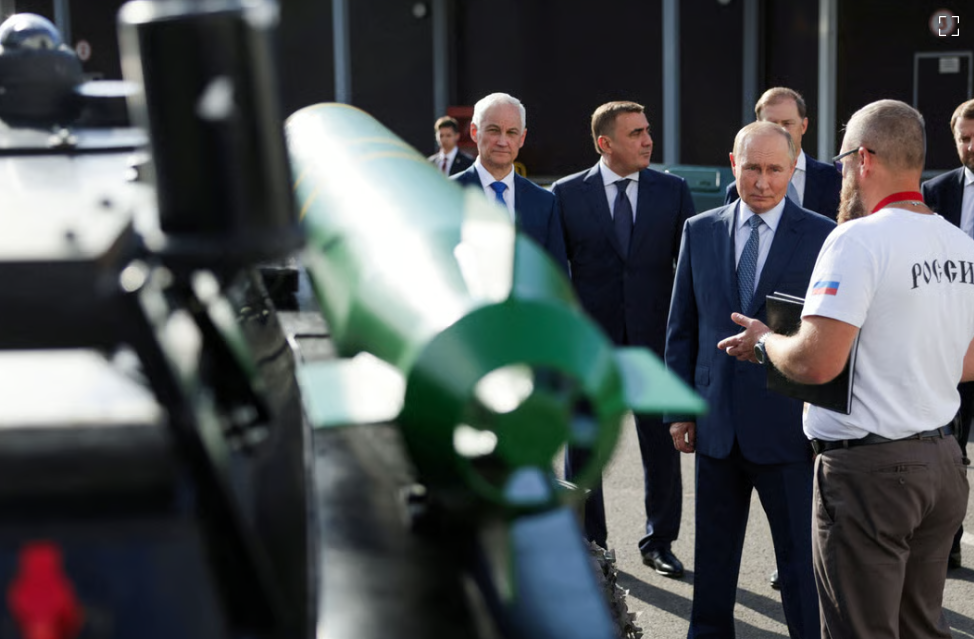On April 8, 2025, Ukraine and the member states of the European Free Trade Association (EFTA) — Iceland, Liechtenstein, Norway and Switzerland — signed a modernised Free Trade Agreement (FTA) in Kyiv. The document was signed by Ukraine’s First Deputy Prime Minister and Minister of Economy Yuliia Svyrydenko, Norway’s Minister of Trade Cecilie Myrseth, Iceland’s Minister of Culture, Innovation and Higher Education Logi Einarsson, Liechtenstein’s Ambassador Frank Büchel, and Jacques Gerber, Swiss Ambassador and Special Representative of the Federal Council for the Reconstruction of Ukraine.
“The support Ukraine has received from the EFTA countries is invaluable. We are confident that this modernised Free Trade Agreement will bring tangible benefits to Ukraine and the EFTA states by creating conditions for closer cooperation and new business opportunities. Thanks to today’s signing, Ukrainian producers will be able to export a much wider range of goods to the EFTA countries either duty-free or at reduced rates — a crucial development in these challenging times. Most importantly, this agreement lays a strong foundation for further economic collaboration between Ukraine and EFTA,” said Yuliia Svyrydenko.
“EFTA member states are committed to supporting Ukraine in this critical time, and this modernised FTA reaffirms that commitment. The new agreement is a significant step toward greater integration of Ukraine into the European market,” said EFTA Chair and Norwegian Minister of Trade Cecilie Myrseth.
The previous FTA between Ukraine and EFTA countries was signed in June 2010.
The modernised agreement is expected to support Ukraine’s recovery and economic growth, strengthen ties with EFTA states, and benefit businesses across various sectors.
Key benefits for Ukrainian producers:
-
Expanded access to EFTA markets.
-
Full elimination of tariffs on industrial goods.
Agricultural trade benefits:
Iceland:
-
Full tariff elimination on 142 items (vegetables, wheat, food products, etc.).
-
Partial tariff reduction on 5 items.
-
The number of duty-free goods has increased by 9.8%; items with reduced tariffs have grown 3.5 times compared to the 2010 agreement.
Norway:
-
Full tariff elimination on 107 items (vegetables, edible roots, fresh/cooked/preserved berries and nuts, oils, juices, etc.).
-
Partial tariff reduction on 78 items (yogurt, butter and spreads, eggs, vegetables, preserved fruits and nuts, etc.).
-
Duty-free items increased by 11.4%; partially reduced tariffs grew by 2.7%.
Switzerland and Liechtenstein:
-
Full tariff elimination on 427 items (pork, milk, cheese, honey, vegetables, fruits and berries, flour, animal and plant oils, canned meat, fruits, etc.).
-
Partial tariff reduction on 163 items (live animals, beef, pork, poultry, dairy products, eggs, beans, vegetables, berries, etc.).
-
Overall, the number of duty-free goods increased by 66.2%.
In addition, the agreement maintains the 0% tariff rate on a number of products that were previously excluded from the 2010 FTA.
New chapters in the agreement:
-
E-commerce — facilitates online trade, regulates e-signatures, digital contracts, and paperless trade administration.
-
SMEs (Small and Medium-sized Enterprises) — improves access to commercial information (including in English), supports information-sharing and coordination through dedicated contact points.
-
Trade and Sustainable Development — ensures trade supports sustainable development goals.
Updated provisions include:
-
Trade in goods, sanitary and phytosanitary measures — aligned with relevant WTO agreements.
-
Trade facilitation — clearer rules for exporters and more transparency in import licensing procedures.
-
Public procurement — eases supplier access to public procurement markets.
-
Cooperation and intellectual property rights protection.
A joint communiqué was adopted following the Ukraine–EFTA bilateral meeting.
Background:
The European Free Trade Association (EFTA) is an intergovernmental organisation established in 1960 to promote free trade and economic integration among its member states and their partners globally. Current members include Iceland, Liechtenstein, Norway, and Switzerland.
In 2024, trade turnover between Ukraine and EFTA countries amounted to nearly €1.3 billion. Over the past five years, Ukrainian exports to EFTA countries grew at an average annual rate of 4.9%, while imports from EFTA countries to Ukraine increased by 9.3%.
Main exports from EFTA countries to Ukraine:
-
Fish and seafood (€229 million)
-
Pharmaceuticals (€143 million)
-
Weapons and ammunition (€77 million)
-
Vehicles (€77 million)
-
Electrical equipment (€44 million)
Main Ukrainian exports to EFTA countries:
-
Fats and oils (€37 million)
-
Precious stones and metals (€26 million)
-
Clothing and accessories (€22 million)
-
Furniture and mattresses (€20 million)
-
Alcoholic and non-alcoholic beverages (€20 million)





















